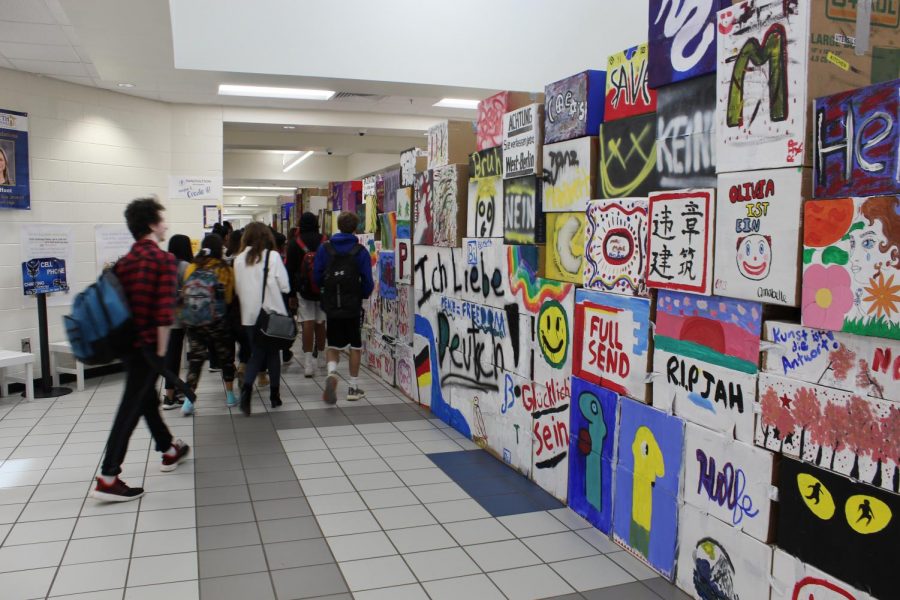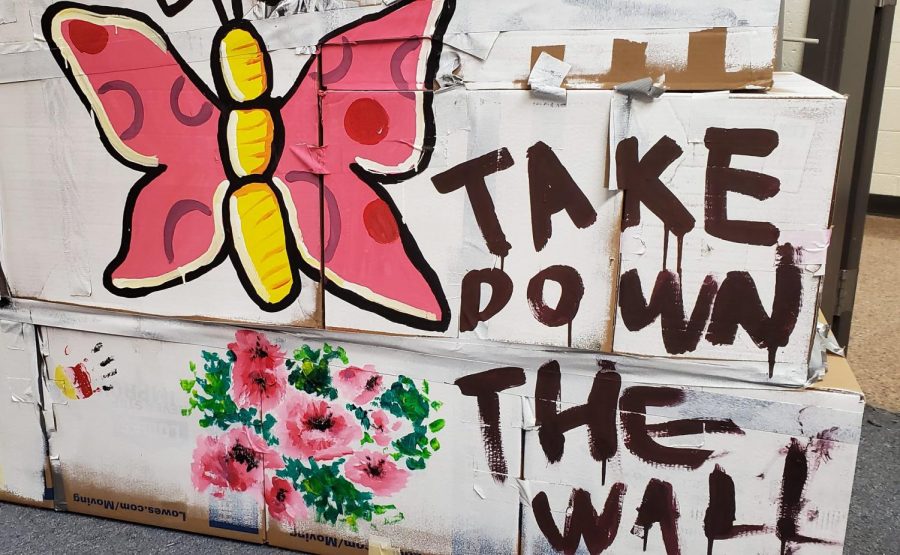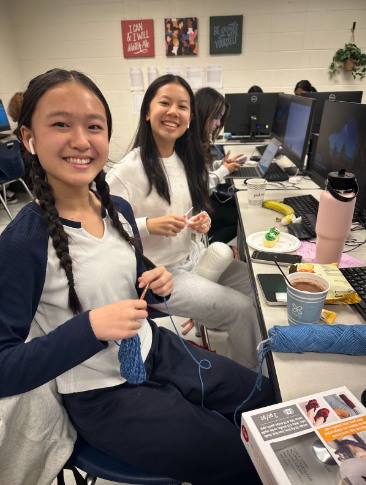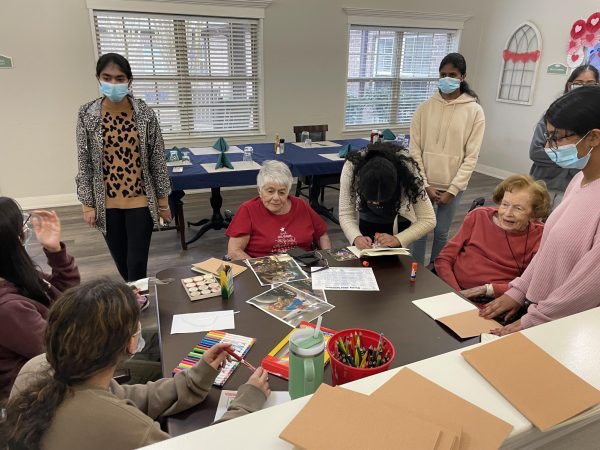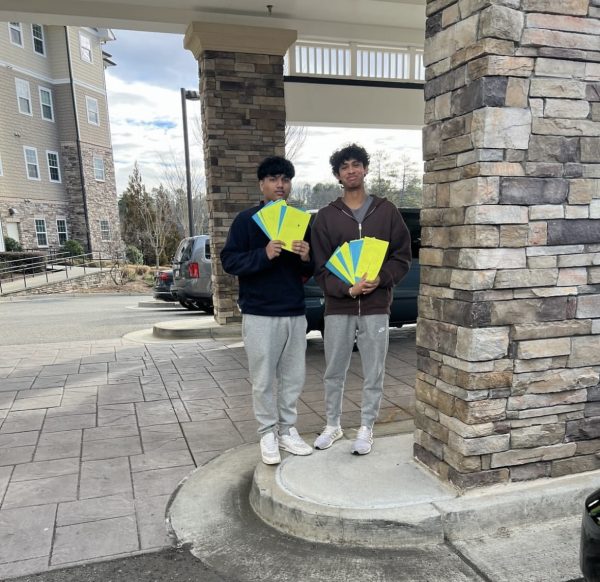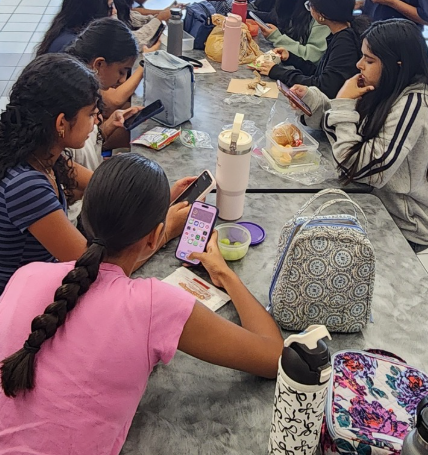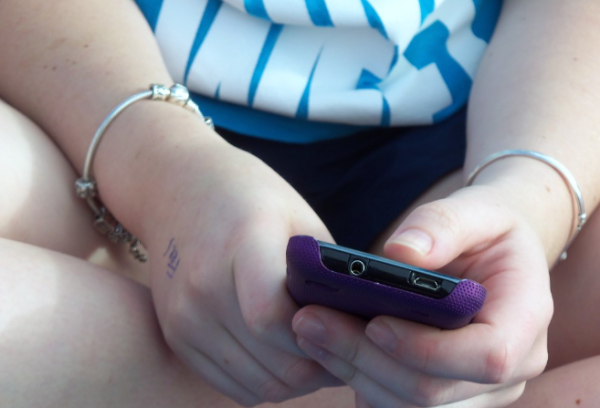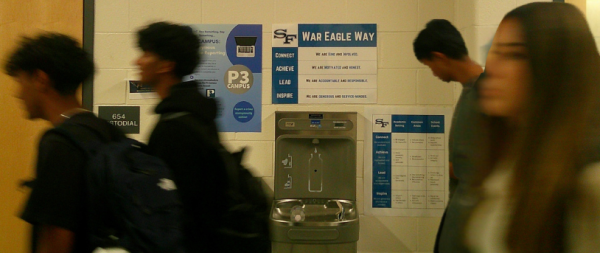South Forsyth commemorates the fall of the Berlin Wall
Walking the divide. In the main hall atrium, the SOFO German Students set up the wall. The point of this demonstration is to bring awareness to the Berlin Wall and how big of an impact it made by separating East and West Germany.
Students filled the hallway, ready for another normal week at school. However, they didn’t know the amount of excitement soon to come, all caused by a few boxes. As students entered the Main Hall Atrium, a big white sign stood in their way, stating, “You are leaving the American Sector,” written in German, Russian and English. In honor of the 30-year anniversary of the fall of the Berlin Wall, the German students created a mock Berlin Wall in the Main Hall Atrium. The goal of the recreation was not only to make students embrace the physical existence of the wall but also to create the mental and emotional divide caused between both East and West German citizens created by the Berlin Wall.
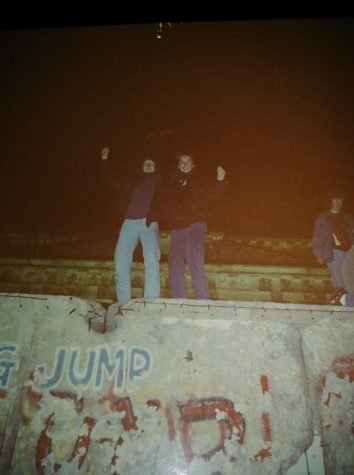
German students built the wall out of cardboard boxes, each box decorated with different pictures resembling graffiti. Building the mock wall was critical to bringing awareness to the effects the Berlin Wall had on German culture.
“It’s important to acknowledge the history of the Berlin Wall not only to prevent history from repeating itself but also to see how humans have come together throughout history to solve these problems. If [the problems] somehow arise again, we have a point of reference and can come up with a similar solution,” says sophomore AP German student, Jocelyn Somerson.
The use of such a significant and emotionally moving display allowed the student body to remember and understand the magnitude of the physical and ideological divide caused by the Berlin Wall. Students set up the wall in the busiest hallway of the school, creating a physical inconvenience and mirroring the confining nature of the divide caused by the real Berlin Wall. The German teachers and students didn’t expect the wall to stand for very long and to receive more graffiti, but instead, the wall became a significant part of each student’s, teacher’s, and staff member’s daily experience.
Herr Strecker, one of the German teachers at South reflects on the effects the Wall had on the German culture. “No wall has ever made any society better. People must come together to make a difference. Separating people only leads to further conflict. The Berlin Wall is only one example of that.”
We interviewed Ms. Bagwell, a 10th-grade literature teacher at South who watched the Berlin Wall fall in real-time. This is her recount of the event.
listen
Along with the physical wall, Frau Steffi Legall and Herr Strecker presented to Ms. Barth’s Genocide and Holocaust Studies class. “[I’m] so glad my classes could listen to our AMAZING German teachers speak about the Berlin Wall. I can’t wait to see the wall that our German club will put up to commemorate the 30th anniversary of the wall coming down,” says Ms. Barth. Implementing the Berlin Wall gave students the opportunity to experience not only the tangible divide but also gain insight into the feelings and emotions regarding the divide.
Senior Jacob Frias, a student in Ms. Barth’s Genocide and Holocaust Studies class, comments on what he was able to learn from Herr Strecker’s experience. “It was really cool to learn about Herr Strecker’s experience in Germany as a young man. He remembers the wall being built, he remembers bringing chocolate and other non-perishables to family members on the East-side, and he remembers them all crying as they had to go because they could not help in any other way. It made me feel remorseful because hearing about someone who was there is different than just hearing about how it affected the country as a whole. It was more personal,” says Frias.
The mock Berlin Wall made a bigger impact than anyone ever expected in the SOFO Community. Students were able not only to feel the physical divide in the hallway but also gain an understanding and appreciation for the people that fought for unity within the German community.
[email protected] or through her Twitter @kelseywbirdfeed.



